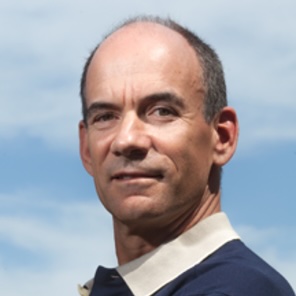Seminar Date: Tuesday, October 7, 2025
Time: 11:00 AM PT
Location: 67-3111 & Zoom
Talk Title: Next-Generation Manufacturing Exploiting Combustion Synthesis And Directed Self-Assembly for Energy Storage and Catalysis
Zoom recording (available for 30 days)
Add this event to your calendar

Abstract:
We demonstrate next-generation manufacturing using a self-assembling polymer as the fuel source in a combustion reaction to generate highly structured nanoporous transition metal oxide films at low temperature on flexible substrates in a matter of minutes using our patented porogen-integrated rapid oxidation (PiRO) process. Structured metal oxide films have promise in optoelectronics, sensing, energy storage, and catalysis. However, current manufacturing techniques involve expensive and low-throughput fabrication techniques that require aging and sintering processes over many hours or days to yield controlled, meso-scale porosity at the cost of manufacturability. I will describe how we use a self-assembling polymer to act as the fuel source in a combustion reaction to generate highly structured nanoporous aluminum and other transition metal oxide films at <250°C in a matter of minutes. The resulting films show an open-cell, face-centered cubic structure of spheroidal pores. Further, an additional ligand can be coordinated to the metal cation to control the self-assembly step. The nanoporous metal oxide films can be filled with a second phase polymer phase to produce nanocomposite films with desirable properties.
Bio:
Reinhold Dauskardt is the Ruth G. and William K. Bowes Professor of the Department of Materials Science and Engineering, the Department of Mechanical Engineering and the Department of Surgery in the Stanford School of Medicine. He is a Visiting Professor in the School of Materials Science at the Nanyang Technical University in Singapore. He and his research group have worked extensively on integrating new hybrid materials into emerging device, nanoscience, and energy technologies and also on the biomechanical function and barrier properties of human skin and other soft tissues. He is an internationally recognized expert on spray plasma processing of functional thin-films, and on the reliability and damage processes in device technologies and soft tissues, specifically the biomechanics of human skin and regeneration processes in cutaneous wounds. He has won numerous awards including the Henry Maso Award from the Society of Cosmetic Chemists for fundamental contributions to skin science (2011), the IBM Shared University Research Award (2011), the Semiconductor Industry Association University Researcher Award (2010), an IBM Faculty Award (2006), the ASM International Silver Medal (2003), an Alexander von Humboldt Research Award (2002), and the U.S. Department of Energy Outstanding Scientific Accomplishment Award (1989).

